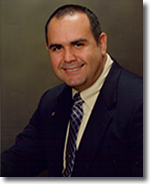
One of the hardest things pharmacy students have to master is the mind-set shift from student pharmacist to pharmacist. As a preceptor, one of my duties is to facilitate this process during their clinical rotations at my site before they sit for the board exam. Some students adapt quickly – within the first week, while others don’t get it at all until they get their board results and are forced into the role.
The same exercise in mind-set shifting is apparent when a patient gets discharged from a hospital stay to independent living again. During their hospital stay, round-the-clock care is provided to the patient. Then the time comes for discharge and the patient is given prescriptions, instructions and follow-up providers to contact. The change is abrupt and can be shocking. Nevertheless, the patient returns to independent living and is expected to remember and follow all directions given upon discharge. Unless there is someone to assist in the transition process, the transition’s success is in jeopardy.
Much like the student pharmacist preparing for practice after schooling, the patient’s role while in the hospital is two-fold: to get well, and to prepare themselves for independent living again. This means that during the hospital stay, the patient’s family members or care providers should make the necessary arrangements to accommodate a smooth transition to home care upon discharge from the hospital. Care roles should be assigned, responsibilities distributed, and appointments made to ensure that the patient’s stress is as little as possible to maximize a speedy recovery.
In the community, the medications prescribed upon discharge are almost always obtained from a retail environment. Here is where the pharmacist can really shine by reinforcing some of their discharge instructions, explaining the proper use of their medications, and ensuring the patient follows the timeframe needed to check with their providers. Our services at this point in care is invaluable to the patient’s peace of mind, understanding and confidence that they can avoid a return trip to the hospital and do what is necessary to stay on track to recovery.
So, whether it is in a supportive or a direct role as a care provider, it is extremely important to anticipate the next step and take action in facilitating the process. Waiting until the situation is upon you causes the transition to be a bumpy, expensive and stressful one.
Until next time, stay well.
Dion

